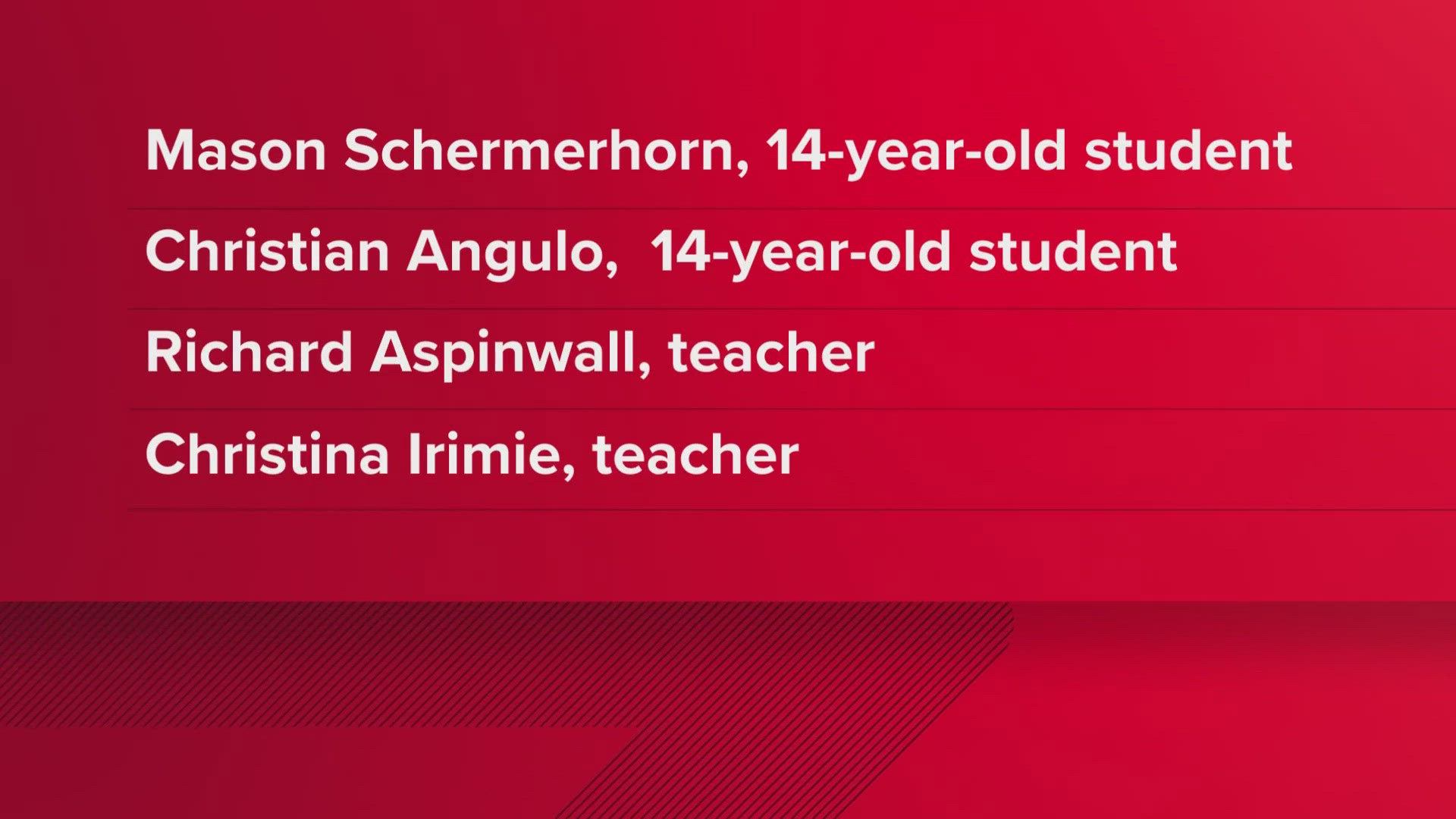WINDER, Ga. — A 14-year-old student opened fire at a Georgia high school and killed four people on Wednesday, authorities said, sending students scrambling for shelter in their classrooms — and eventually to the football stadium — as officers swarmed the campus and parents raced to find out if their children were safe.
The dead were identified as two students and two teachers at Apalachee High School in Winder, about an hour’s drive from Atlanta. Killed were two other 14-year-olds, Mason Schermerhorn and Christian Angulo, and instructors Richard Aspinwall and Christina Irimie, Georgia Bureau of Investigation Director Chris Hosey said in a nighttime news conference.
At least nine other people — eight students and one teacher — were taken to hospitals with injuries. All were expected to survive, Barrow County Sheriff Jud Smith said.
RELATED: Teen charged with killing 4 at Georgia high school had been focus of earlier tips about threats
As we learn more abut the shooting, there were a few things about it that stand out.
First, the age of the gunman. At 14 years old, the student is the youngest school shooter since 1999. He is currently in custody and will be charged with murder. He will also be charged as an adult.
Second, law enforcement response time. Around 10:20 a.m., there were reports of an active shooter at the school. Within minutes, law enforcement had been deployed and two student resource officers (SROs) engaged the shooter.
This is a stark contrast with other school shootings like the one in Uvalde, Texas at Robb Elementary School. In that case, it took officers well over an hour to engage the gunman.
Brett Cross lost his son Uziyah on that day. He told WUSA9 not enough is being done to stop the violence.
"Instead of being reactive to these situations, we need to be proactive. We need to hit the roots of why these things happen," Cross said. "Do we need to talk mental health? Absolutely. Do we need to talk guns? Absolutely. These things need to be talked about and need to be dealt with. Until then, we're left to just rely on reactive measures. Reactive measures leave children dead, as we've seen in every mass shooting ever."
Before Wednesday, there had been 29 mass killings in the U.S. so far this year, according to a database maintained by The Associated Press and USA Today in partnership with Northeastern University. At least 127 people have died in those killings, which are defined as incidents in which four or more people die within a 24-hour period, not including the killer — the same definition used by the FBI.
Last year ended with 217 deaths from 42 mass killings, making 2023 one of the deadliest years on record for such shootings in the country.
"Seriously, when is enough enough? When are we going to do something about this? How many more children's lives have to end by gun violence for us to do something ... anything," Cross said.
Cross also said one of the first things law enforcement should investigate is how a 14-year-old boy got a gun.

